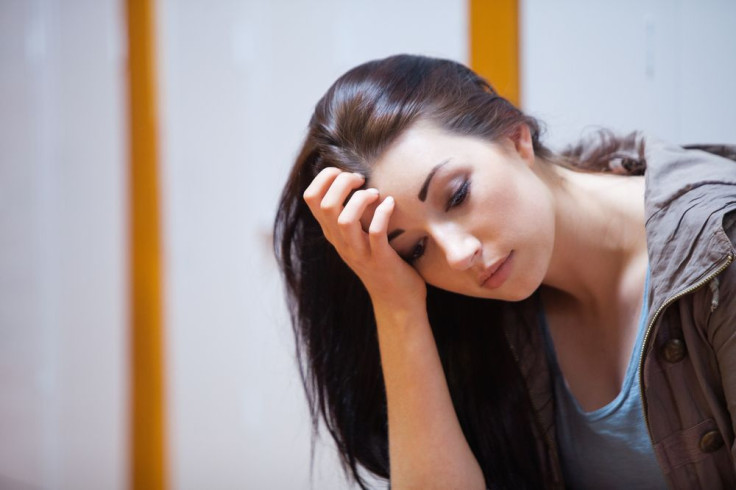Bisexual Women Face Mental Health Challenges Due To Stigma

So here’s a scenario: You’re at a club, drunk, and you notice two women in the corner kissing each other. Thoughts race through your mind; Are they a lesbian couple? Are they straight and just having some drunk fun? Are they bisexual? What’s with these confused women; it’s either you’re lesbian or you’re straight. Unfortunately, many people think in these black-and-white terms despite the complexity of sexuality. And there’s a good chance it’s that stigma that’s behind the findings of a new study, which found that bisexuals in the UK have poorer mental health than lesbians.
The study, from researchers at the London School of Hygiene & Tropical Medicine, looked at responses from over 5,700 bisexual and lesbian women in the UK who participated in the 2007 Stonewall UK Women’s Health Survey. The researchers found that bisexual women were 64 percent more likely to report an eating problem, 37 percent more likely to have committed self-harm, 26 percent more likely to have felt depressed, and 20 percent more likely to have suffered from anxiety in the previous year when compared to lesbians. Older bisexual women were also more likely to report suicidal thoughts than younger ones — this might have happened after years of hiding the truth about their sexuality.
Only 16 percent of participants claimed to be bisexual; a number the researchers felt was underreported due to a reluctance to admit bisexuality. Nevertheless, those who claimed bisexuality were less likely to be “out” to friends, family, and coworkers. They were also less likely to be in a relationship. And as a result of not coming out, they were less likely to experience sexuality-related discrimination at work, in health care and educational settings, and with family. Instead, most of that discrimination came from friends, who probably viewed them as confused and sexually promiscuous.
“These disturbing results echo international findings on mental health differences between bisexual and homosexual people,” lead author Lisa Colledge said in a press release. “All women deserve equal chances of mental well-being and happiness, regardless of their sexuality. Homophobic prejudice is now widely and rightly condemned; specific stigma around bisexual identity needs to be similarly confronted.”
That stigma doesn’t only come from heterosexuals. A survey from 2013 found that 15 percent of people don’t consider bisexuality to be a legit sexual orientation. And while straight men were three times more likely to say that than white women, lesbians, and gay and bisexual men, many gays and lesbians viewed bisexuals in a negative light.
However, the truth is bisexuality is a legitimate sexual orientation that comprises between two and 25 percent of the population. “Coming out” is an event filled with tremendous pressure, as bisexual people weigh whether they’ll have the support that’s necessary when claiming to be part of an oppressed people. The journey to coming out is often filled with confusion because that person is finding themselves just as we find ourselves through life’s experiences. In the end, some find their attraction leads more toward one of the sexes, while others view both equally as beautiful.
Breaking these barriers to acceptance — letting people live their lives, in other words — is perhaps the most important way to improve the mental health of bisexuals, as the current study also found bisexuals were more likely to view themselves with negative attitudes. But because that’s more difficult to do quickly, the researchers suggest mental health services be aware that differences exist between bisexual and lesbian women’s mental health in order to tailor their health care needs.
Source: Colledge L, Reid D, Hickson F, Weatherburn P. Poorer mental health in UK bisexual women than lesbians: evidence from the UK 2007 Stonewall Women's Health Survey. Journal of Public Health. 2015.



























